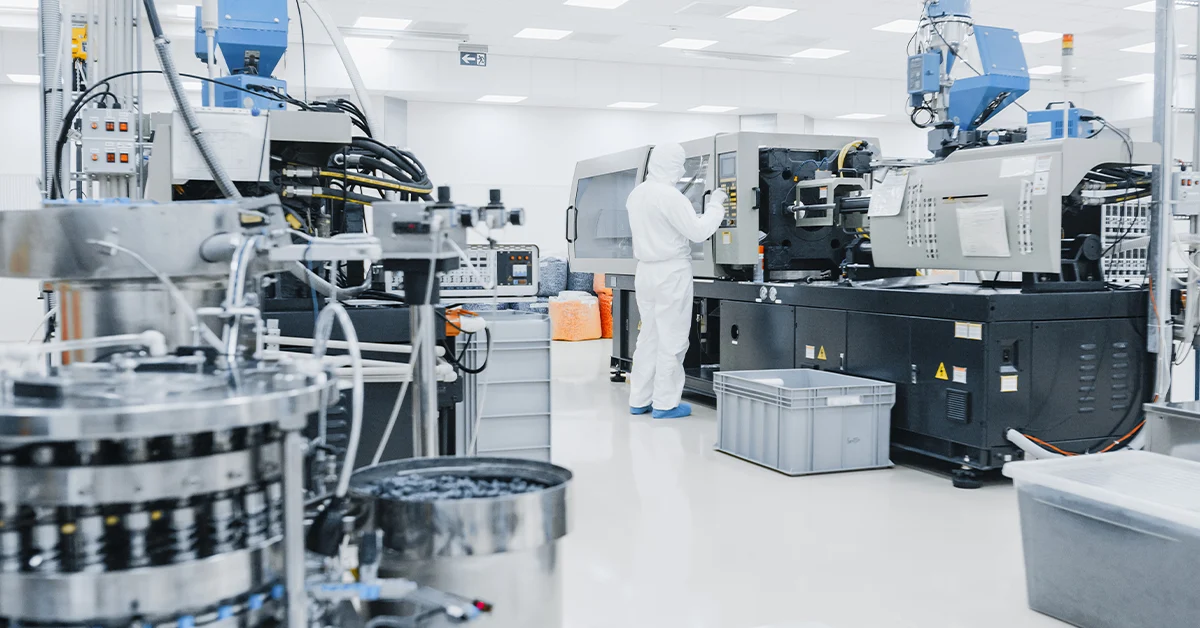The pharmaceutical industry is undergoing a profound transformation driven by the adoption of automation technologies. From drug discovery and development to manufacturing and distribution, automation is enhancing efficiency, ensuring quality, and accelerating innovation.
Here’s an in-depth look at how automation is revolutionizing the pharmaceutical industry.
Streamlining Drug Discovery and Development
One of the most significant impacts of automation in the pharmaceutical industry is in the drug discovery and development process.
Automation technologies, such as high-throughput screening (HTS) and robotic systems, enable researchers to conduct thousands of experiments simultaneously. This significantly speeds up the identification of potential drug candidates.
Additionally, automated data analysis and machine learning algorithms can process vast amounts of biological data to identify patterns and predict drug efficacy.
This accelerates the early stages of drug development, reducing the time and cost associated with bringing new drugs to market.
Enhancing Manufacturing Processes
Automation is transforming pharmaceutical manufacturing by improving precision, consistency, and efficiency. Automated systems can perform complex manufacturing tasks with high accuracy, minimizing human error and ensuring consistent product quality. Key areas where automation is making a difference include:
• Automated Production Lines: Robotics and automated machinery handle tasks such as mixing, granulation, tablet pressing, and packaging. This reduces manual intervention and enhances the speed and accuracy of production.
• Continuous Manufacturing: Unlike traditional batch processing, continuous manufacturing involves the nonstop production of pharmaceutical products. Automated systems monitor and control the process in real-time, ensuring optimal conditions and consistent quality.
• Quality Control and Inspection: Automated inspection systems use technologies like machine vision to detect defects and ensure products meet stringent quality standards. This reduces the risk of faulty products reaching the market.
Improving Quality Assurance and Compliance
The pharmaceutical industry is heavily regulated, with stringent requirements for quality assurance and compliance. Automation helps companies meet these requirements by providing:
• Electronic Batch Records (EBR): Automated systems generate and manage electronic batch records, ensuring accurate and complete documentation of every step in the manufacturing process. This facilitates regulatory compliance and simplifies audits.
• Real-Time Monitoring: Sensors and automated monitoring systems continuously track critical parameters during production, such as temperature, pressure, and humidity. Real-time data collection ensures immediate detection of deviations and corrective actions.
• Automated Documentation: Automation streamlines the documentation process, reducing paperwork and ensuring accurate record-keeping. This enhances traceability and accountability, essential for regulatory compliance.

Optimizing Supply Chain and Logistics
Automation also plays a crucial role in optimizing the pharmaceutical supply chain and logistics. Advanced technologies like IoT, AI, and robotics are enhancing supply chain efficiency in several ways:
• Inventory Management: Automated inventory systems track stock levels in real-time, ensuring optimal inventory levels and reducing the risk of stockouts or overstocking. This is particularly important for managing the supply of raw materials and finished products.
• Cold Chain Management: For temperature-sensitive pharmaceuticals, automated systems monitor and control storage conditions throughout the supply chain. This ensures the integrity and efficacy of products from production to delivery.
• Automated Warehousing: Robotic systems and automated guided vehicles (AGVs) streamline warehousing operations, from sorting and picking to packing and shipping. This reduces labor costs and improves order accuracy and fulfillment speed.
Enhancing Research and Clinical Trials
Automation is transforming pharmaceutical research and clinical trials by enabling more efficient and accurate data collection and analysis. Key advancements include:
• Laboratory Automation: Automated laboratory systems perform repetitive tasks such as sample preparation, analysis, and testing. This increases throughput and frees up researchers to focus on more complex tasks.
• Clinical Trial Management: Automation streamlines the management of clinical trials, from patient recruitment and data collection to monitoring and reporting. Automated systems ensure timely and accurate data entry, improving the reliability of trial results.
• Data Integration and Analysis: Advanced analytics and machine learning algorithms process and analyze data from multiple sources, identifying trends and insights that inform research and development.
Conclusion
Automation is revolutionizing the pharmaceutical industry, driving efficiency, ensuring quality, and accelerating innovation across the entire value chain.
From drug discovery and manufacturing to quality assurance and supply chain management, automation technologies are transforming how pharmaceutical companies operate.
By embracing automation, the industry can meet the growing demands for safe, effective, and affordable medications while navigating an increasingly complex regulatory landscape.
The future of pharmaceuticals is automated, and the potential for innovation and improvement is limitless.
